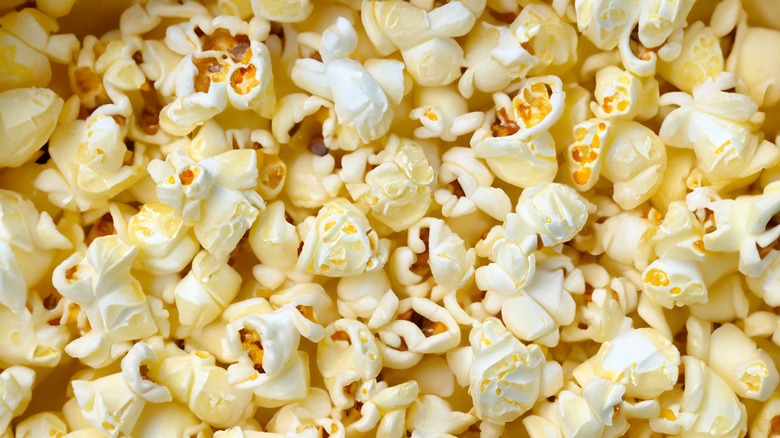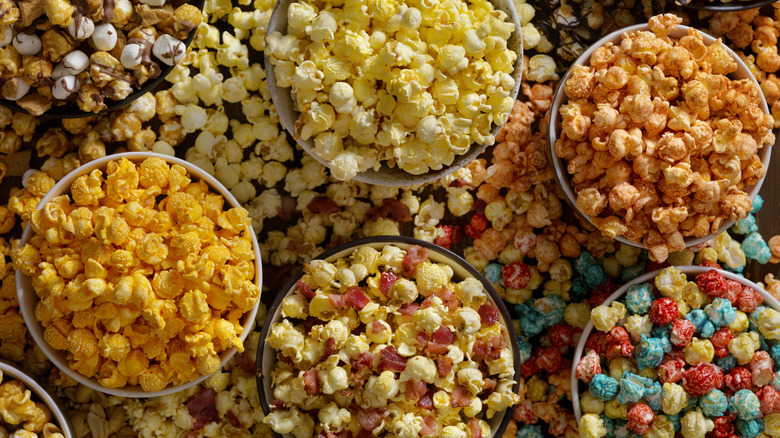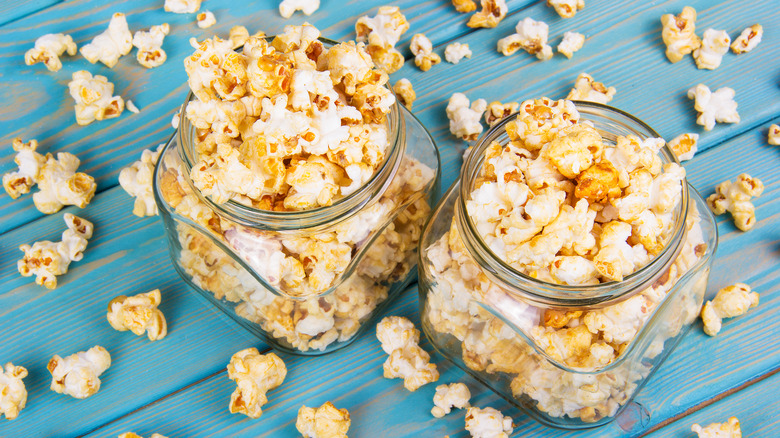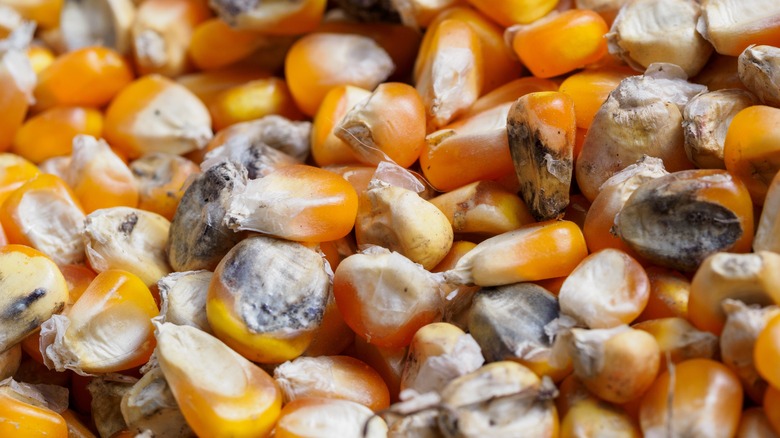Can You Eat Expired Popcorn?
All foods eventually go past their prime, but not all of them decay to the point where they're dangerous to eat. Some pantry staples, including grains like popcorn, just cross over from being fresh to, well, not so fresh. There may be exceptions, but most popcorn comes with a best-before or a best-by date, rather than an expiration date. This shows that the product's quality will eventually decrease, but it usually won't expire and become a health hazard to eat. Technically, you can eat expired popcorn, but don't be surprised if the kernels don't pop properly or if the flavor seems stale and "off."
How long your popcorn will stay fresh depends on the type. Unopened bags of already-popped corn will generally taste fine for two to four weeks beyond their best-by dates. Once opened, popcorn will start to taste off in a week or two, or quicker if it isn't stored properly. On the other hand, dry, unpopped kernels of corn will stay fresh indefinitely, though you may find that older kernels don't pop as well as fresh ones.
For best results, dry popcorn kernels can be used within six months to a year beyond their best-by dates. As for microwavable bags of popcorn, they should be fine for roughly three months past the date on the bags. Beyond that, the fats and flavorings in the product tend to change, and its flavor will leave much to be desired.
Signs that your popcorn is past its prime
There are few things more disappointing than a movie night with stale popcorn, so watch out for signs that will tell you just how fresh your popcorn is.
The biggest indicator of spoiled popped corn will be its smell. If your popped corn has a suspicious and odd odor, throw the bag away. The same goes for microwaveable popcorn. Although you can't really open the bag and give it a quick whiff before popping the corn, you can gauge its quality by the smell of the plastic wrap that the bag is packaged in. If the oils inside the bag have gone rancid, you'll notice their funky odor, even through the plastic wrap. You can always go by the taste, too. If your buttery popcorn tastes even remotely off, it's time to toss it out.
Things are a little different with plain, dry kernels that you'd pop on your stove or microwave in a brown bag. Though they have an indefinite shelf life, popcorn kernels do lose moisture and dry out over time, which can prevent them from popping under heat. If your kernels have a darker hue than usual, chances are they've dried out, and you'll have more hard kernels in your bowl than actual popped corn.
How to keep your popcorn fresh for as long as possible
The trick to making sure that your popcorn stays fresh for as long as possible is to store it properly. If you've just popped fresh kernels and have some left over, always wait until they cool down completely before you transfer them to a container. Packing popcorn while it's still warm will create a moist and steamy environment, which speeds up the decay of most dry goods.
As tempting as it may be to seal a half-empty bag of popcorn with a clip and call it a day, it's always best to transfer leftovers to an airtight container or ziplock bag. This will keep the popcorn from losing too much moisture and drying out, while also keeping excess moisture out so that your light and fluffy kernels don't turn stale and chewy. You could even add a layer of cling film on top of the popcorn before you close the lid on the container for extra protection.
Once it's packed up, store the popcorn in a cool and dry place, especially if it's coated in chocolate or caramel, which can melt into a sticky mess under heat. Alternatively, you can freeze popped kernels, too. The popcorn won't freeze solid, but its moisture level will be regulated, which can keep the kernels fresh for as long as three months.
Can eating expired popcorn make you sick?
Popcorn typically comes with a best-by date on the package, not an expiration one. According to the USDA, a best-by date indicates when a product starts to decline in flavor or quality, not when it becomes unsafe to eat. The agency adds that if foods age past this date, but they've been stored properly and show no signs of spoilage, they can usually be eaten without ill effects. So, even if your popcorn has passed the date on the package, it's likely still safe to eat.
That said, there are some exceptions. Although popcorn is not very susceptible to mold due to its low moisture content, spore formation is still a possibility, and munching on moldy kernels will obviously make you sick. Ingesting some mold won't always lead to violent bouts of illness, but you might experience nausea, vomiting, and diarrhea as your body tries to flush the toxin out (via Prevention).
The other concern with expired popcorn is the quality of the oil in the product. As time passes, it might become rancid. A 2018 study published in the Journal of Food and Nutrition Sciences found that ingesting rancid oil can lead to the formation of harmful free radicals that may cause cell damage, and is also linked to digestive issues and diabetes. If your popcorn is the microwavable kind, or has already been popped in oil, use extra caution when gauging its safety.




